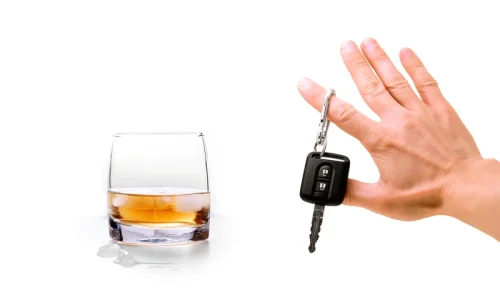
You can also consider joining sober activities or sober events in your community, such as support groups to build your sober support network. Attending support groups can be a great way to meet other recovering addicts who understand what you are going through. Likewise, during these support groups, you can gain motivation from others who may be further along their recovery journey.
The Role of Socialization in Addiction

A sober support network is a group of individuals who understand the challenges of recovery and provide emotional, psychological, and practical support throughout the journey. For addicts that attended and completed a rehab program, there may be an opportunity to join an alumni association for that particular treatment center. Last but not least, just because you receive addiction treatment doesn’t mean you can never ask for help from a professional again. If you are struggling with triggers to abuse drugs, consider receiving professional addiction treatment from a specialist. This way you not only grow your sober support network, but you can also continue to work on yourself and your sobriety journey with a trained professional.

Accountability and Encouragement
The same is true of family members, but people in recovery must beware to limit relationships with family members that were enablers or those who do not support or take addiction recovery seriously. In many cases relationships with family members are cited as the cause of substance abuse, so it’s important to choose the family and friends that are permitted into a support network carefully and honestly. By actively participating in a sober support network, individuals sober network significantly reduce the likelihood of relapse and gain ongoing encouragement beyond the initial stages of treatment. The continuous support and guidance provided by the network make long-term sobriety more attainable and provide a sense of belonging and purpose to individuals in recovery [4]. Building and maintaining a strong support network is an essential step in establishing a solid foundation for a successful and fulfilling life in sobriety.
Strategies for Building and Expanding Your Sober Network

Let’s explore the impact of peer support on recovery success and the reduction in relapse rates. Remember that building and maintaining a support network requires effort and ongoing communication. It’s important to reciprocate support, be open to feedback, and continue seeking help when needed. Having a sober support network is important because it prevents isolation, provides emotional support, accountability, and access to resources, and helps avoid relapse. Building a sober support network is a journey that requires dedication, but the rewards are immeasurable. By creating a strong support system, identifying key members, and engaging in sober-friendly activities, you lay the foundation for a successful recovery.
Why is having a strong support system critical for addiction recovery success?
- During your recovery journey, you can rebuild these relationships with trusted friends and family members.
- Listening to others’ stories of addiction and recovery can also foster a sense of belonging.
- It was an ordinary evening, I went out on a weekend with my friends after finishing up work.
- Members of a sober support network can offer guidance, share their own experiences, and provide valuable insights.
- They often work with doctors and other health professionals to create an addiction treatment plan tailored to your needs.
In the event of relapses among support network members, it is crucial to continue seeking support and encourage those who have relapsed to get back on track. It’s essential to emphasize the importance of not letting setbacks discourage the recovery journey. If you’re struggling with addiction, it’s important to remember that you don’t have to go it alone.
We offer help from the moment you begin recovery well into years of sobriety when you look back proud of what you have accomplished. If you’re a student, it’s likely that your school or university has special programs available for people who struggle with substance abuse and addiction. These programs could consist of therapy or counseling, the hosting of recovery-related groups, resources to get outside help and possibly funding for treatment.
Benefits of Having a Sober Support Network
You can use the app to connect with people near you who are also in recovery, find rides to support meetings, or meet others who share similar hobbies or special interests. The majority of our participants travel from various locations within Minnesota, including nearby counties. Additionally, many individuals come from greater distances to receive treatment at Pioneer and choose to stay in sober living facilities while participating in our program. By including addiction professionals in your support network, you can greatly enhance your recovery journey. Opening up and asking for support from loved ones may feel challenging or unsafe due to shame and social stigma. But connecting with an understanding, compassionate community can make a positive impact on recovery and long-term sobriety.
Getting Started Building a Support Network
Joining a softball league, for instance, lets you build camaraderie through a shared interest rather than a shared sobriety. Starting work with a therapist guarantees you that you’ll have at least one staunch supporter in your journey to recovery. Your therapist can help you work toward your goals and overcome cravings or other mental health challenges. Many people start their journey to recovery by attending a substance use treatment center. These professional treatment facilities offer many different therapy and treatment options, from cognitive behavioral therapy to medication-assisted treatment and more. All of these groups emphasize the importance of finding a community of sober peers, helping one another on the path to recovery, and living a lifestyle that makes it easier to maintain your sobriety.
Supporting someone recovering from addiction can be taxing, so make sure you clearly explain what you will need. You can find local support group meetings by searching online or contacting organizations like AA and NA for meeting schedules in your area. Use of this site constitutes acceptance of Sober Recovery’s “Terms of Use”, “Privacy Policy”, “Cookie Policy”, and “Health Disclaimer”. The material on this site is for informational purposes only, and is not a substitute for medical advice, diagnosis or treatment provided by a qualified health care provider.

Taking it one step at a time can help you focus on finding the right support system for your recovery process and sobriety. You might discover that some people in your life may not be able to support you in the ways you need. You can take all the time you need to build a support system that’s right for you. If you’re not sure where to start, making a list of recovery organizations and groups that sound interesting to you might be a useful first step.
Subscribe to our email newsletter to get the latest posts delivered right to your email.

Comments